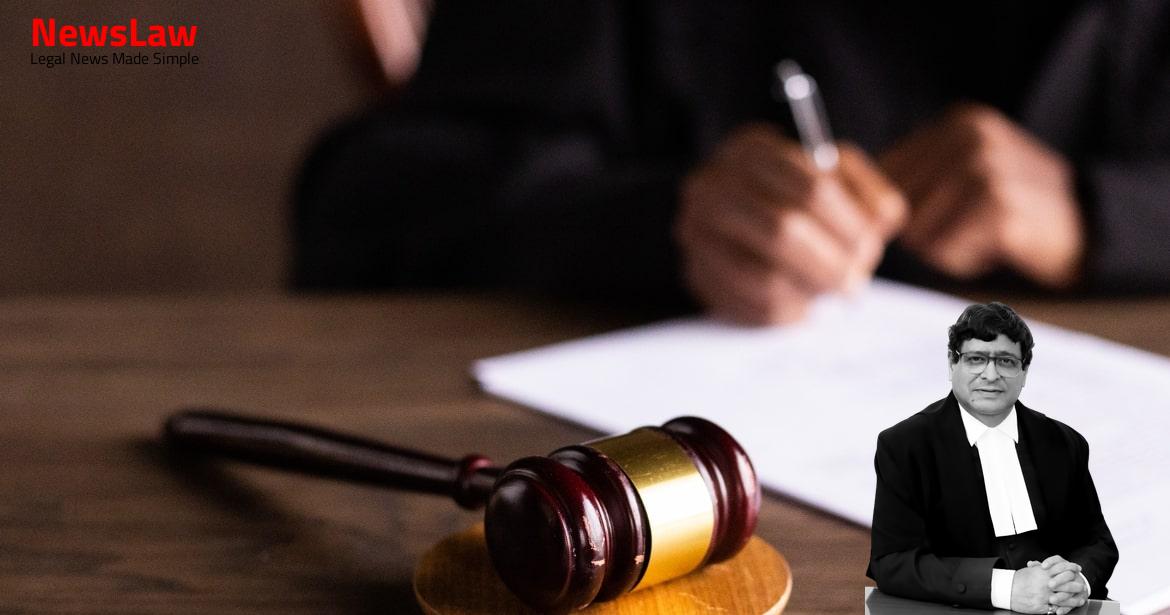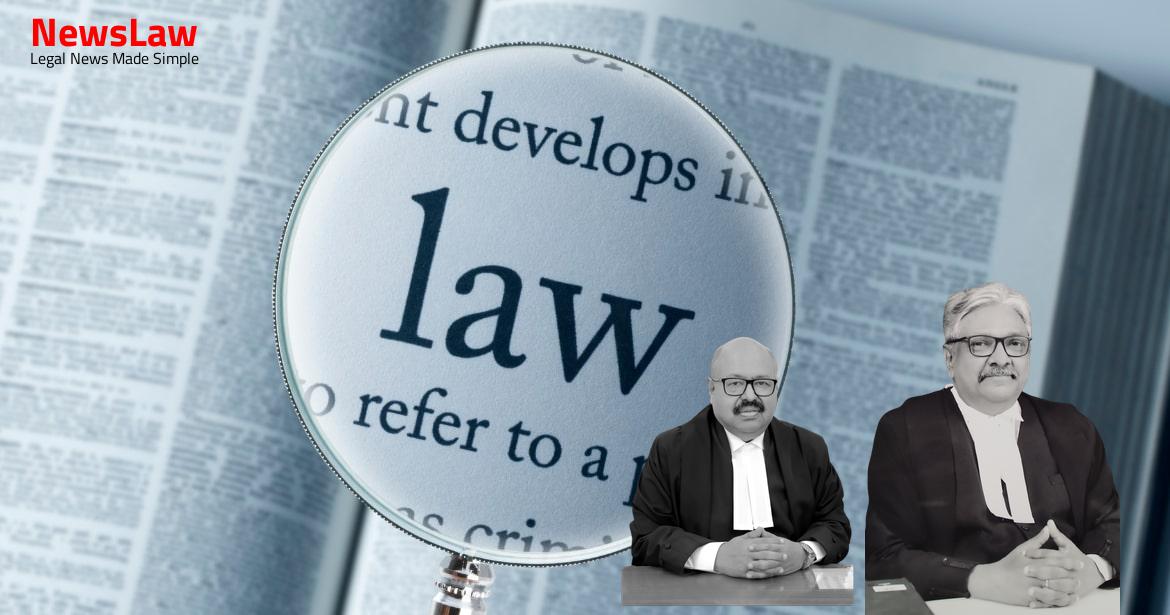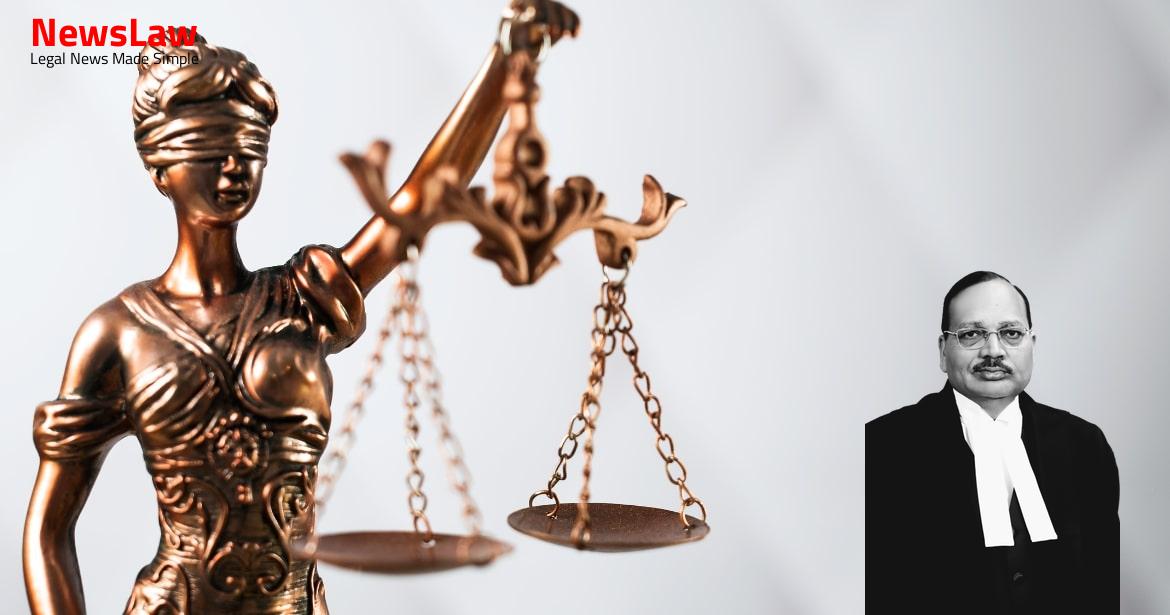In a significant legal case before the Supreme Court of India, the issue of enforcing land conversion policies was deliberated in the matter involving the State and a property owner. The court’s ruling has far-reaching implications on property rights and adherence to government regulations. Explore the details of this case and its impact on the property ownership landscape.
Facts
- On 30 September 1981, a lease of a plot was granted to the respondent by the State Government for a period of ninety years under the Government Grants Act 1895.
- On 18 July 2003, the State government formulated a scheme to allow conversion of residential leasehold plots into freehold land.
- On 15 September 2003, the respondent applied for conversion of the leasehold plot to freehold.
- On 22 March 2014, the competent officer in the GA Department submitted a report regarding the position at the site and recomputed the conversion fee.
- The respondent addressed communications regarding the fencing and encroachment on the plot at various instances.
- Several notices and proceedings were initiated by the State, including a notice for eviction under the Orissa Public Premises (Eviction of Unauthorized Occupants) Act 1972.
- The respondent submitted affidavits and letters to the authorities in response to the communications and notices.
- Various re-enquiries and rejections of pleas for recomputing conversion fees based on past rates were part of the proceedings.
- High Court decision to allow the writ petition
- Direction to the State to recompute the conversion fees as of 15 September 2003
Arguments
- Learned counsel argued that only a small plantation was made outside the leasehold plot and should not be considered encroachment.
- It was suggested that the communication dated 19 April 2006 might be ante-dated as it took a long time for the respondent to respond to the communication from 13 May 2004.
- The counsel contended that conversion charges should be based on prevailing rates at the time of the decision, not the application date.
- It was pointed out that the government’s policy required the applicant to not be in unauthorized occupation of government land for conversion.
- On the contrary, counsel for the respondent argued that there was no encroachment on the land, as clarified in letters dated 19 April 2006 and 6 August 2008.
- The senior counsel for the appellants emphasized that conversion rates should be based on the date of decision, citing the Chennai Metropolitan Developoment Authority v. Prestige Estates Project Ltd. case.
- The appellants’ counsel asserted that an encroachment was made by the respondent adjacent to the leasehold plot, and the policy mandated removal of encroachments.
- State’s delay in considering the application does not justify increased rates being imposed on the respondent.
- The recent decision in Chennai Metropolitan Development Authority case relied on precedents like State of Tamil Nadu v Hind Stone and Howrah Municipal Corporation v Ganges Rope Co Ltd.
- One of the policy terms is that the applicant should not encroach on government land.
- The High Court was correct in ruling that the rate at the time of application should be used to calculate conversion charges.
- Applicants must adhere to the policy terms, including not encroaching on government land.
- Submitting an application does not guarantee permission.
Also Read: CRPF Act: Validity of Rule 27 for Compulsory Retirement – Case of Head Constable vs. CRPF
Analysis
- The respondent moved the writ proceedings before the High Court in 2015, almost twelve years after the initial communication.
- The letter dated 6 August 2008 contradicts the communication dated 19 April 2006 regarding encroachment.
- The policy for conversion from leasehold to freehold must be strictly adhered to.
- A notice to show cause was issued to the respondent on 28 December 2009.
- Compliance with the policy is necessary to claim conversion to freehold.
- The respondent addressed a communication on 6 August 2008 claiming compliance with the letter dated 19 April 2006.
- State government’s policy states that encroachment on government land within Bhubaneswar Municipal Corporation limits would make a lessee ineligible for conversion to freehold unless the encroachment is vacated.
- High Court’s direction to recompute conversion charges was deemed unjustified as per the specific policy provisions.
- Inspection report of 30 June 2010 confirmed that encroachment had not been vacated.
- The respondent cannot claim conversion charges fixed as of the date of the application in 2003.
- If the respondent felt the State had not acted on his representations, he should have sought a decision earlier through writ proceedings.
Also Read: DAMEPL vs. DMRC: Curative Petition and Arbitral Award Restoration
Decision
- The appeal is allowed and the impugned judgment of the High Court is set aside.
- The respondent must comply with the directions given by the State government regarding conversion charges and make necessary payments.
- Upon compliance, the application for conversion of land from leasehold to freehold should be processed quickly.
- No costs are awarded in this case.
- The writ petition filed by the respondent is dismissed.
Case Title: THE STATE OF ODISHA Vs. BICHITRANANDA DAS
Case Number: C.A. No.-009521-009521 / 2019



